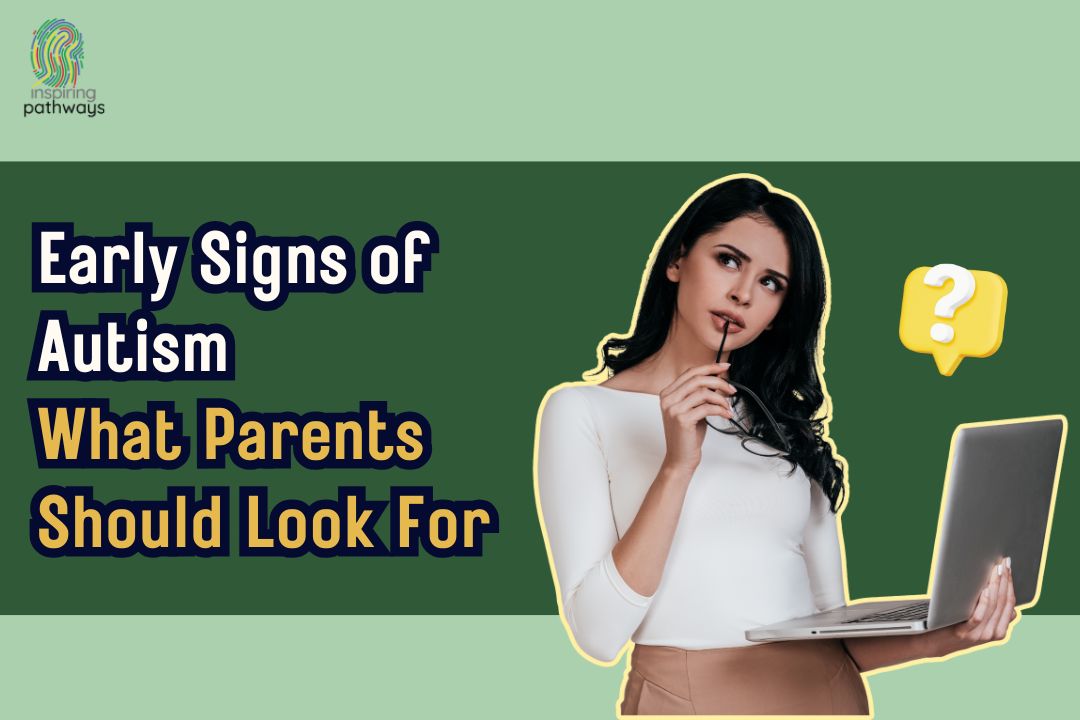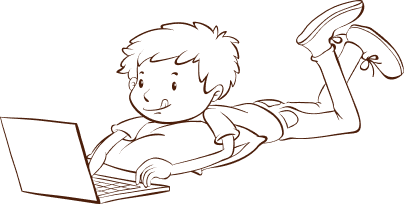










Autism is a complex developmental disorder that might affect a child’s ability to communicate, interact socially, and develop skills in other areas. Therefore, identifying the early signs of autism can help maximize a child’s potential by ensuring timely intervention.
The early signs of autism are generally present before the age of 2. However, they can sometimes be difficult to distinguish from typical developmental variations, making it essential for parents to stay vigilant. If they notice anything unusual, seeking professional guidance can be beneficial in understanding their child’s needs.
Autism in infants and children often manifests through various communication, behavioral, and social challenges. While some signs appear during infancy, additional indicators become more evident as a child grows. As a result, early diagnosis plays a crucial role in supporting a child’s development, which is why recognizing these signs at different stages is important.
In this blog, we’ll first discuss the early signs of autism in infants, followed by those in children. Then, we’ll highlight key symptoms that indicate when parents should consult an ABA therapist, speech therapist, or caregiver.
Recognizing autism in infants can be challenging, as every child develops at their own pace. Nevertheless, certain behaviors may indicate early signs of autism:
As a child grows, these early behaviors may evolve, and additional signs may become more apparent. Many children with autism begin to exhibit noticeable challenges between the ages of 2 and 3 years. At this stage, diagnosis and intervention become even more critical, as they can significantly impact a child’s development.
As children reach toddlerhood and early childhood, signs of autism often become more distinct. These include:
Detecting autism early in a child’s life provides significant benefits. Above all, early diagnosis allows for timely intervention, which is crucial for improving developmental outcomes.
Research has shown that children who receive early interventions—such as behavioral therapy, speech therapy, and occupational therapy—tend to experience better progress in communication, social skills, and overall behavior. Thus, the sooner a child receives support, the greater the chances of enhancing their development and independence.
Autism spectrum disorder (ASD) is a lifelong condition, but with the right support, children can learn to manage their symptoms and reach their full potential. As mentioned earlier, early intervention plays a key role in helping children develop vital communication and socialization skills, improving their overall quality of life.
If you notice early signs of autism in your infant or child, it’s important to speak with your pediatrician. They can then assess your child’s developmental progress and determine whether further evaluation is needed. If necessary, they may recommend interventions like Applied Behavior Analysis (ABA), speech support, or occupational training.
If you have any questions or need guidance, feel free to reach out to us at support@inspiringpathways.in—we’re here to help.

© Inspiring Path Ways. All Rights Reserved | Designed By : AimGlobal.digital
What are some early signs of autism that parents in Bangalore should look for?
Autism symptoms can vary, but some early signs include difficulty with eye contact, delayed speech, repetitive behaviors like hand-flapping, and challenges in social interactions. Some children may also be sensitive to sounds, textures, or bright lights. If you notice these signs in your child, it’s best to consult an autism specialist. Inspiring Pathways can connect you with leading doctors and therapists in Bangalore to guide you through the next steps.
Where can I find autism treatment centers in Bangalore?
Bangalore has several well-equipped autism centers, therapy clinics, and hospitals that provide behavioral therapy, speech therapy, occupational therapy, and special education programs. Inspiring Pathways helps parents find the right specialists and therapists near them based on their child’s needs. Simply get in touch with us at +919164062455, and we’ll guide you through the process.
Are there support groups for parents of autistic children in Bangalore?
Yes, Bangalore has several autism support groups where parents can connect, share experiences, and seek guidance. Some active groups include Parent Support Groups at NIMHANS, the Autism Society of India (based in Bangalore), and various online communities on WhatsApp and Facebook. Moreover, Inspiring Pathways can also help parents identify and join the right support networks, whether in-person or online, to make their journey easier and more informed.
How can I access reliable information about autism in Bangalore?
Parents can attend workshops and awareness programs held by organizations like NIMHANS, Autism Society of India, and local therapy centers. Additionally, trusted hospitals and therapy clinics in Bangalore frequently host sessions on autism awareness. Inspiring Pathways provides curated resources and connects parents with experts who offer accurate and practical guidance.
Where can I find good schools for children with autism in Bangalore?
Bangalore has several inclusive schools and special education centers that cater to children with autism. Many institutions offer specialized programs, therapy support, and individualized learning plans to help children thrive. Additionally, some mainstream schools provide special education support to ensure a more inclusive learning environment. Inspiring Pathways can assist you in exploring school options and connect you with the best doctors and specialists who best suit your child’s needs, helping you make an informed decision for their education and overall holistic development.
Is autism caused by bad parenting? Did I do something wrong?
No, autism is not caused by parenting style or personal actions. It is a neurodevelopmental condition influenced by genetic and environmental factors. Many parents in Bangalore go through feelings of guilt and self-doubt, but it’s important to focus on early intervention and therapy rather than self-blame. Inspiring Pathways provides emotional and practical support to help you navigate this journey.
Can autism be cured with alternative therapies like homeopathy or Ayurveda?
Currently, there is no scientific evidence that autism can be cured by homeopathy, Ayurveda, or stem cell treatments. The most effective interventions focus on improving communication, social skills, and overall development through therapies such as Applied Behavior Analysis (ABA), Speech and Occupational Therapy, Special Education, and Sensory Integration. Inspiring Pathways ensures that parents in Bangalore have access to evidence-based therapies and helps them make informed decisions about their child’s care.
How can Inspiring Pathways help parents in Bangalore?
At Inspiring Pathways, we know how overwhelming it can be for parents to find the right care and support for their child with autism. That’s why we are here—to guide you through this journey with compassion and expertise. We connect families with top autism specialists, therapists, and support groups in Bangalore, ensuring access to the best resources. From finding autism-friendly schools and therapy centers to offering guidance on early intervention and daily challenges, we are committed to making this path easier for you. No matter where you are in your journey, Inspiring Pathways is here to support you every step of the way. We are just a call away. Ring us now at 9164062455 for more information.
Online consultation speech, speech therapy, oral placement therapy and sensory integration, special educators, Vocational training centres, Assisted living communities, Disability certificate, Assessment, Will format, Financial planning, Nirmaya health insurance, Swavalamban insurance, UDID, Autism, ADHD, Cerebral palsy, Downs syndrome, Shadow teacher training, Preschool teacher training, NIOS, OBE level A, B,C, Parenting counselling, Parent child program, Structured teaching